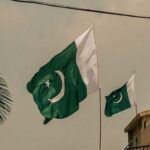New Delhi: “Unacceptable interference.” Opposition leaders and defence experts took sharp exception to US President Donald Trump claiming credit for the India-Pakistan ceasefire and offering to mediate on the Kashmir issue. They called it a “diplomatic misstep” and a “breach of India’s sovereign stance” on bilateral issues. They also expressed disappointment that the ceasefire announcement came from Washington, not New Delhi.
Congress General Secretary Jairam Ramesh questioned whether India had “abandoned the Shimla Agreement” and whether “doors to third-party mediation” had been opened. “The mention of ‘neutral site’ by US Secretary of State Marco Rubio for dialogue between India and Pakistan raises many questions. Have we opened the doors to third-party mediation?” he asked, demanding an all-party meeting on issues arising post ‘Operation Sindoor’ and the ceasefire.
Echoing the sentiment, Rajya Sabha MP Kapil Sibal urged the government to call a special Parliament session. “Many questions will be raised on this tweet… We want a special Parliament session and an all-party meeting. I want to appeal to all political parties not to attend the meeting unless the prime minister is present,” he said.
Congress MP Manish Tewari added, “Kashmir is not a biblical 1000-year-old conflict. It started on October 22, 1947, when Pakistan invaded the Independent State of Jammu & Kashmir.” He stressed that President Trump’s grasp of historical facts needed serious correction.
RJD MP Manoj Jha was scathing in his reaction. “Who are you to decide? Who gave you the mandate?” he asked, calling for a “strong protest” from the Indian government and accusing Trump of treating India as a “geopolitical football”.
He also criticised the US President for announcing a ceasefire “before we could even give our official briefing”.
Congress MP Pramod Tiwari joined the chorus and asked, “Do we need to tune in to Washington Radio to find out?”
He too demanded a special Parliament session chaired by the PM Modi.
Shiv Sena (UBT) MP Priyanka Chaturvedi was direct: “We do not need a US intervention or that of any other country to find a solution on Kashmir. Destiny has given us that responsibility and India must rise up to that challenge.”
Defence Expert Brigadier Hemant Mahajan (Retd) dismissed Trump’s role as ineffective. “He tried to negotiate between Ukraine and Russia, and nobody listened. So now he is trying his hand at India. If the US wants to help, they should give us drones and tech, not advice,” he said.
‘Don’t Internationalise Kashmir Issue’
All India Majlis-e-Ittehadul Muslimeen (AIMIM) chief Asaduddin Owaisi said, “I wish it had been our government that informed the country of a ceasefire, not the President of a foreign nation.”
In a post on X, he stressed that any resolution between India and Pakistan should be bilateral, not shaped by outside influence. “We have always opposed third-party involvement since Simla (1972). Why are we accepting it now?” he asked.
Owaisi emphasised his support for the armed forces and the nation in the face of external aggression. Referring to the April 22 Pahalgam terror attack, which left 26 people dead, he insisted that peace must not come at the cost of accountability.
“As long as Pakistan uses its territory for terrorism against India, there can be no permanent peace. Ceasefire or no ceasefire, we must pursue the terrorists responsible for the #Pahalgam attack,” he said.
The AIMIM MP also paid tribute to the victims and security personnel lost in the conflict, including Army jawan M Murali Naik and Additional Deputy Commissioner Raj Kumar Thapa.
“I thank our Armed Forces for their bravery and professionalism. I pray for all the civilians who were killed or injured,” he added, while hoping the ceasefire would bring some much-needed respite to residents of border areas.
Owaisi also raised questions about the DGMO-level talks. “Why are they being held on neutral ground? What exactly is the agenda? Is there any assurance that Pakistan will stop using its territory to shelter terrorists?” he asked. He also called on India to intensify efforts to internationally isolate Pakistan. “We must continue pushing for Pakistan’s return to the FATF grey list,” he urged.
The ceasefire, which took effect from 5 p.m. on May 10, came after weeks of escalating conflict, including cross-border drone and missile exchanges and deep-penetration strikes by Indian forces under Operation Sindoor. A formal meeting between the Directors General of Military Operations (DGMOs) from both countries is scheduled for May 12.
The armed forces had carried out precision strikes on nine terror camps across Pakistan and Pakistan-occupied Kashmir (PoK), inflicting significant damage on five Pakistani air force installations and exposing lapses in Pakistan’s air defence. These strikes came after Pakistan launched multiple failed missile attacks targeting Indian cities.
The ceasefire was brokered in part through backchannel diplomacy involving the US, Saudi Arabia and the UAE.
Trump Offers Kashmir Mediation
President Trump, in a post on Truth Social, praised the cessation of hostilities between India and Pakistan and reiterated his offer to mediate on Kashmir.
“I am very proud of the strong and unwaveringly powerful leadership of India and Pakistan for having the strength, wisdom and fortitude to fully know and understand that it was time to stop the current aggression that could have led to the death and destruction of so many and so much. Millions of good and innocent people could have died. Your legacy is greatly enhanced by your brave actions,” he wrote.
He continued, “I am proud that the USA was able to help you arrive at this historic and heroic decision. While not even discussed, I am going to increase trade, substantially, with both of these great nations. I will also work with you both to see if, after a ‘thousand years’, a solution can be arrived at concerning Kashmir. God Bless the leadership of India and Pakistan on a job well done!!!”
India Plays Down US Role
However, the government played down any American role in the ceasefire agreement. The Ministry of External Affairs reiterated that the understanding was achieved between the Directors General of Military Operations (DGMOs) of India and Pakistan.
External Affairs Minister S. Jaishankar reaffirmed India’s position: “India and Pakistan have today worked out an understanding on stoppage of firing and military action. India has consistently maintained a firm and uncompromising stance against terrorism in all its forms and manifestations. It will continue to do so.”
India has consistently rejected any third-party mediation on Kashmir, asserting it as an internal matter and a sovereign issue. The government maintains that the region is an integral part of the country and bilateral mechanisms like the Shimla Agreement govern any dialogue between India and Pakistan.
Stay informed on all the , real-time updates, and follow all the important headlines in and on Zee News.








